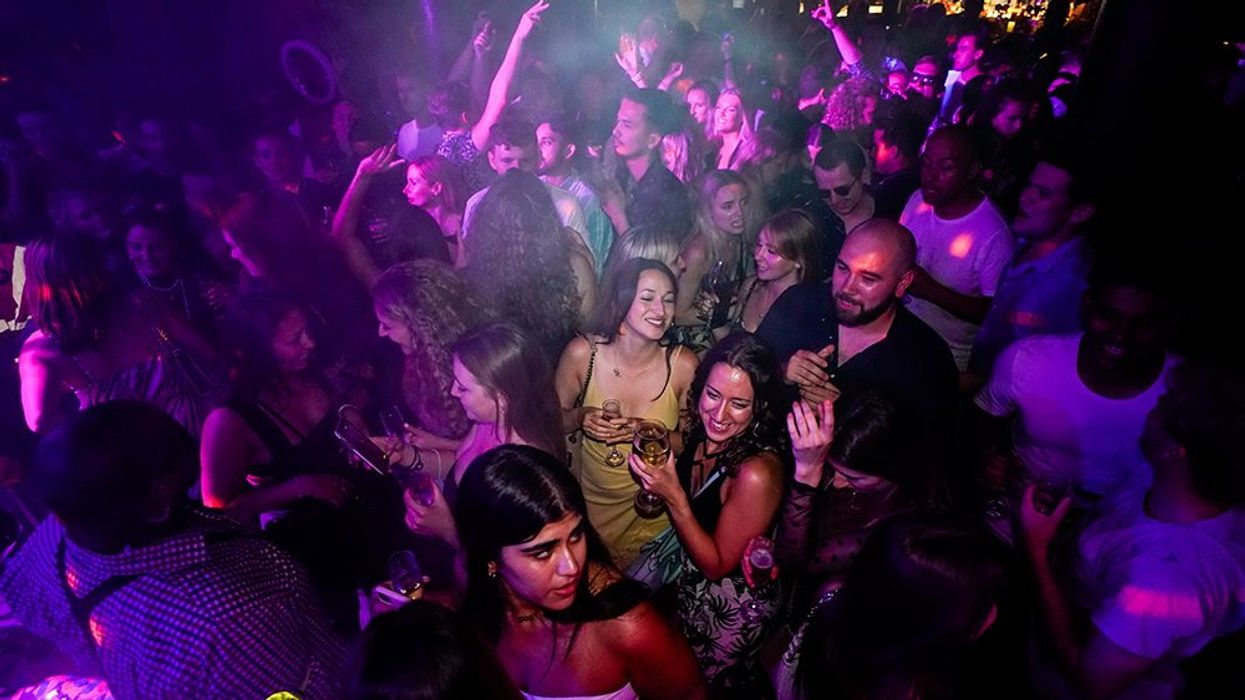It's the crescendo of a night out, the place everyone builds the night up to, the venue to dance and party the night away until the early hours of the morning without a thought or care for how you might feel in a few hours' time.
Or at least it was.
Nightclubs are on the decline; almost a third (32 percent) of all nightclubs across the UK have shut their doors for good since the Covid pandemic started in March 2020 to December 2023, according to the Night Time Industries Association (NITA).
Of the 396 nightclubs to have closed in that timeframe, 312 of them were independent, and 851 remain.
But why is this?
The effect of the pandemic of the hospitality industry seems to be an easy answer, but NITA has published its latest 'Electronic Beats, Economic Treats' report which suggests there are a number of factors at play, including a shift in behavioural patterns and what younger people are now looking for.
It's important to put into context that the appetite for electronic and dance music continues to grow, and this genre is synonymous with nightclubs; yet one seems to be thriving and the other declining.
Looking at electronic music, the latest NITA report reveals it's the second most popular genre on UK streaming platforms, almost a third of all acts booked at UK festivals fall into that genre and 80 percent of people in the UK that listen to it do so every day.
But NITA calculates there were 8.6million less nights out in 2023 compared to 2022, with a total of 90million last year, with total spending directly with nightclubs, such as tickets and drinks, down to £624.3m in 2023 from £743.6m in 2022 as a result.
That's more than £115m less, and before taking into account any indirect spending, such as travel costs and pre-drinks.
The reports says factors for this include the cost of living crisis, a focus on people just going out at weekends, a shift towards fewer, bigger and better events and less drinking which creates a cycle.
This is where Gen Z comes in.
The report says according to the Portman Group’s most recent survey, which is compiled with YouGov, 39 percent of 18-24-year-olds do not consume alcohol at all, and 44 percent prefer low or non-alcoholic drinks, which is 13 percent more from the previous year.
As well as people wanting to lead healthier lifestyles, the report also attributes the cause of some nightclub closures down to expectations set from TikTok, which sets a preference for fewer, bigger and better nights and is a platform generally used more by younger audiences.
Influencers on the social media site are usually seen to be going to some of the biggest, best and priciest clubs and festivals in the world rather than a local nightclub.
Add into the mix a large amount of Gen Zs would have lost prime years of going to nightclubs to the pandemic.
Andy Blackett, head of promotions and Judy Griffith, programming director, both of Fabric London, are quoted as saying: "The UK electronic music scene stands at a pivotal moment.
"Its impact on the economy, culture, and community is undeniable.
"However, for it to continue thriving, it requires recognition, support, and protection.
"The journey ahead is not just about sustaining a genre of music but preserving a vibrant cultural ecosystem that resonates across generations."
The NITA report says 294 music festivals with electronic acts were hosted in the UK last year, with an attendance of 2.7million and £567.8million injected into the economy, a nine percent growth.
The proportion of electronic music gigs rose too from six percent to eight of all gigs put on in the UK between 2022 and 2023.
Some artists and promoters have and are experimenting with making nightclubs more accessible and inviting with new wants in mind, such as Annie Mac recently hosting a series of events that started at 7pm and finished at midnight.
But to combat the nightclub downward spiral, NITA is calling for Government to give out more help, saying it's not just the pandemic that has hit hard, but 'reflects years of neglect, burdensome regulations, and insufficient governmental support'.
The association wants to see financial relief to struggling clubs, and central to it is a reduction of VAT to 12.5 percent, with NITA saying if that is not done, 'further closures across the sector are inevitable'.
Michael Kill, CEO of NITA, said: "The marginalisation of nightlife businesses has left them feeling neglected, questioning the Government’s motive, with limited avenues for survival.
"As we navigate recovery, it’s imperative that policymakers acknowledge the vital role of these establishments and provide the support they urgently need."
In response, a Government spokesperson said: "Our decisive action helped to more than halve inflation last year, which is protecting businesses around the country from higher costs that they would otherwise have faced.
"We’ve also recently extended measures to support hospitality, including a 75 percent discount on business rates and freezing alcohol duty until August 2024."
How to join the indy100's free WhatsApp channel
Sign up for our free Indy100 weekly newsletter
Have your say in our news democracy. Click the upvote icon at the top of the page to help raise this article through the indy100 rankings.














